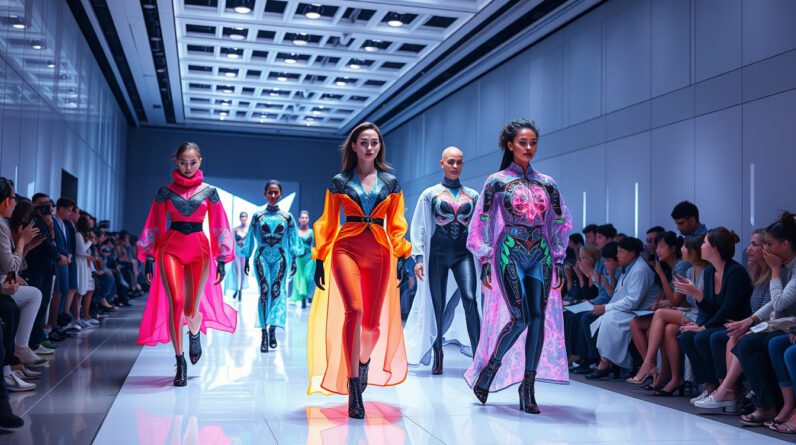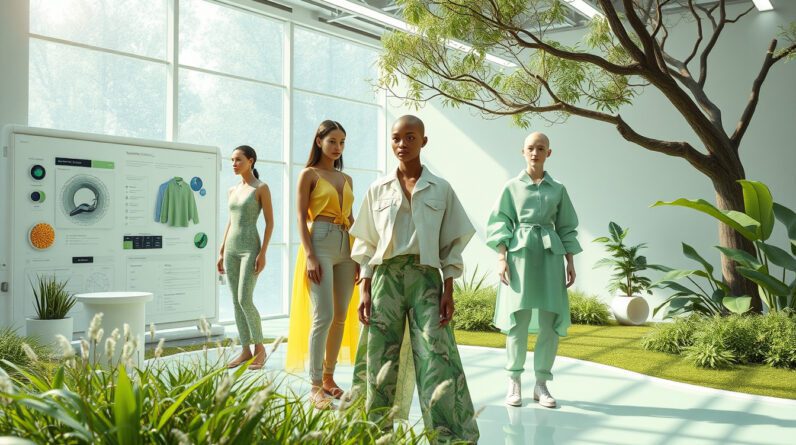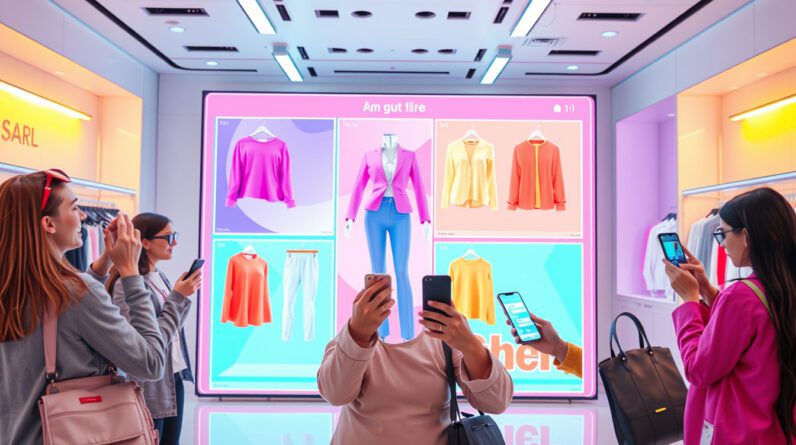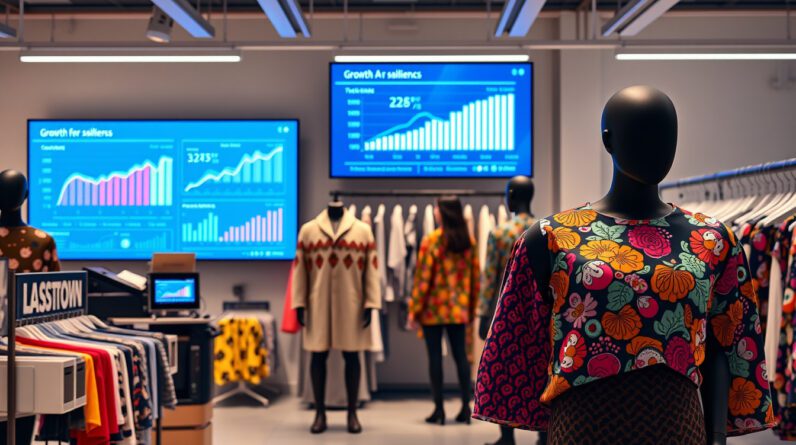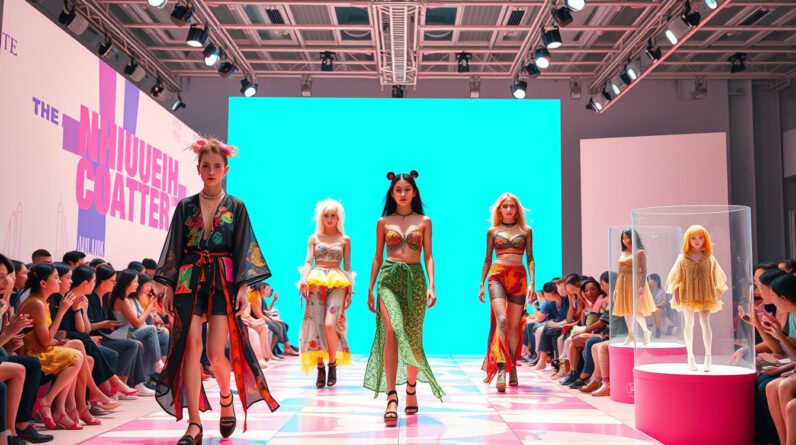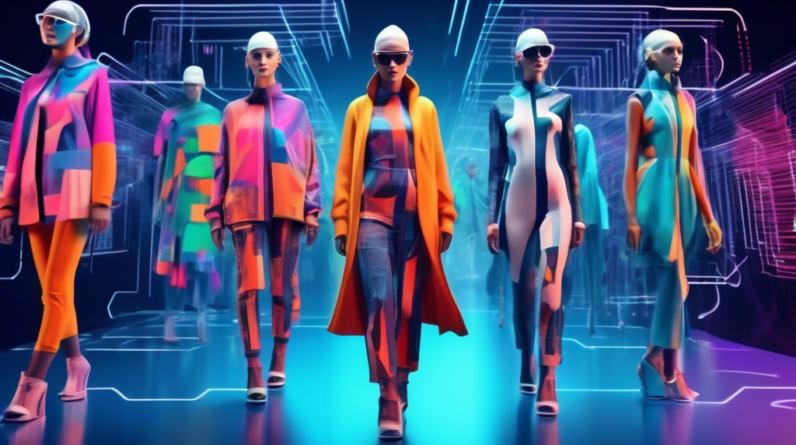
The fashion industry, renowned for its ever-evolving trends and creative spirit, is undergoing a technological transformation driven by artificial intelligence (AI). This powerful technology is revolutionizing every aspect of the fashion ecosystem, from design and manufacturing to marketing and customer experience. The global AI in fashion market is experiencing remarkable growth, fueled by the increasing adoption of AI-powered solutions by industry players seeking to enhance efficiency, boost sales, and gain a competitive edge.
Factors Driving the Growth of AI in Fashion
Several factors are contributing to the rapid expansion of the AI in fashion market:
- Demand for Personalized Experiences: Today’s consumers crave personalized shopping experiences. AI enables fashion brands to analyze vast amounts of data about individual preferences, purchase history, and browsing behavior to offer highly targeted product recommendations and personalized styling advice. This level of personalization significantly enhances customer satisfaction and drives sales.
- Increased Efficiency and Automation: AI-powered solutions automate tedious and repetitive tasks across the fashion value chain. From design and pattern making to inventory management and logistics, AI streamlines operations, reduces costs, and improves efficiency. This allows fashion companies to focus on creativity, innovation, and delivering exceptional customer service.
- Trend Forecasting and Predictive Analytics: AI algorithms can analyze real-time data from social media, fashion shows, and online platforms to identify emerging trends and predict future fashion demands. This invaluable insight helps designers create collections that resonate with consumer preferences and allows brands to optimize inventory management, reducing waste and maximizing profitability.
- Enhanced Supply Chain Management: AI-powered systems optimize supply chain operations by forecasting demand, tracking inventory levels, and automating logistics. This ensures timely delivery of products, reduces lead times, and minimizes waste, leading to significant cost savings and improved customer satisfaction.
- Rise of Virtual Styling and Shopping: AI is transforming the way consumers shop for fashion. Virtual styling platforms use AI algorithms to create personalized outfits based on individual preferences, body types, and style goals. Augmented reality (AR) and virtual reality (VR) technologies are enhancing the online shopping experience by allowing customers to virtually try on clothes and accessories, providing a more immersive and engaging shopping journey.
Applications of AI in Fashion
The applications of AI in the fashion industry are vast and continue to expand rapidly. Here are some key areas where AI is making a significant impact:
- Product Design and Development: AI assists designers in creating innovative and appealing designs. By analyzing trends and consumer preferences, AI algorithms can generate design ideas, suggest color palettes, and even create virtual prototypes.
- Personalized Recommendations: AI-powered recommendation engines provide customers with personalized product suggestions based on their browsing history, past purchases, and style preferences, leading to increased sales conversions.
- Visual Search and Image Recognition: AI allows shoppers to search for clothing and accessories using images instead of text. This technology can identify specific items or similar styles from uploaded photos, making the shopping experience more intuitive and efficient.
- Virtual Styling and Fit Assistance: AI-powered virtual stylists provide personalized fashion advice and outfit recommendations. Virtual try-on tools utilize AR technology to let users see how clothes would look on them without physically trying them on.
- Inventory Management and Demand Forecasting: AI optimizes inventory levels by forecasting demand, tracking stock movements, and automating replenishment orders. This reduces waste, minimizes stockouts, and improves overall supply chain efficiency.
- Fraud Detection and Prevention: AI algorithms can identify and prevent fraudulent activities, such as fake accounts, payment fraud, and counterfeit products, enhancing security and trust within the fashion ecosystem.
Future Outlook: The Evolving Landscape of AI in Fashion
The AI in fashion market is poised for exponential growth in the coming years. As AI technology continues to advance and become more sophisticated, we can anticipate even more innovative applications and transformative changes in the fashion industry.
- Hyper-Personalization: AI will enable a new level of hyper-personalization, where fashion brands will offer bespoke clothing and accessories tailored to individual customers’ unique measurements, style preferences, and even their DNA.
- Sustainable and Ethical Fashion: AI will play a crucial role in promoting sustainability and ethical practices in the fashion industry. From optimizing material usage and reducing waste to ensuring fair labor practices, AI will help fashion companies become more environmentally and socially responsible.
- AI-Powered Design Assistants: AI-powered design assistants will become increasingly prevalent, assisting designers throughout the creative process. These intelligent tools will generate design ideas, suggest fabric choices, and even automate pattern making, freeing up designers to focus on the artistic aspects of their work.
- The Metaverse and Virtual Fashion: AI will shape the future of fashion in the metaverse, a collective virtual shared space. AI-powered avatars will wear digital fashion creations, and consumers will be able to purchase and showcase these virtual garments in online worlds and gaming environments.
- Increased Adoption by Small and Medium Enterprises: As AI solutions become more accessible and affordable, small and medium-sized fashion businesses will increasingly adopt these technologies to enhance their operations, compete effectively, and reach a wider audience.
Conclusion
The integration of AI into the fashion industry is revolutionizing the way fashion is designed, manufactured, marketed, and consumed. From personalized experiences and increased efficiency to trend forecasting and virtual styling, AI is empowering fashion brands to meet the evolving demands of consumers while creating new opportunities for growth and innovation. As AI technology continues to advance, we can expect even more transformative changes in the fashion landscape, shaping a future where technology and creativity converge to redefine the boundaries of style and self-expression.

